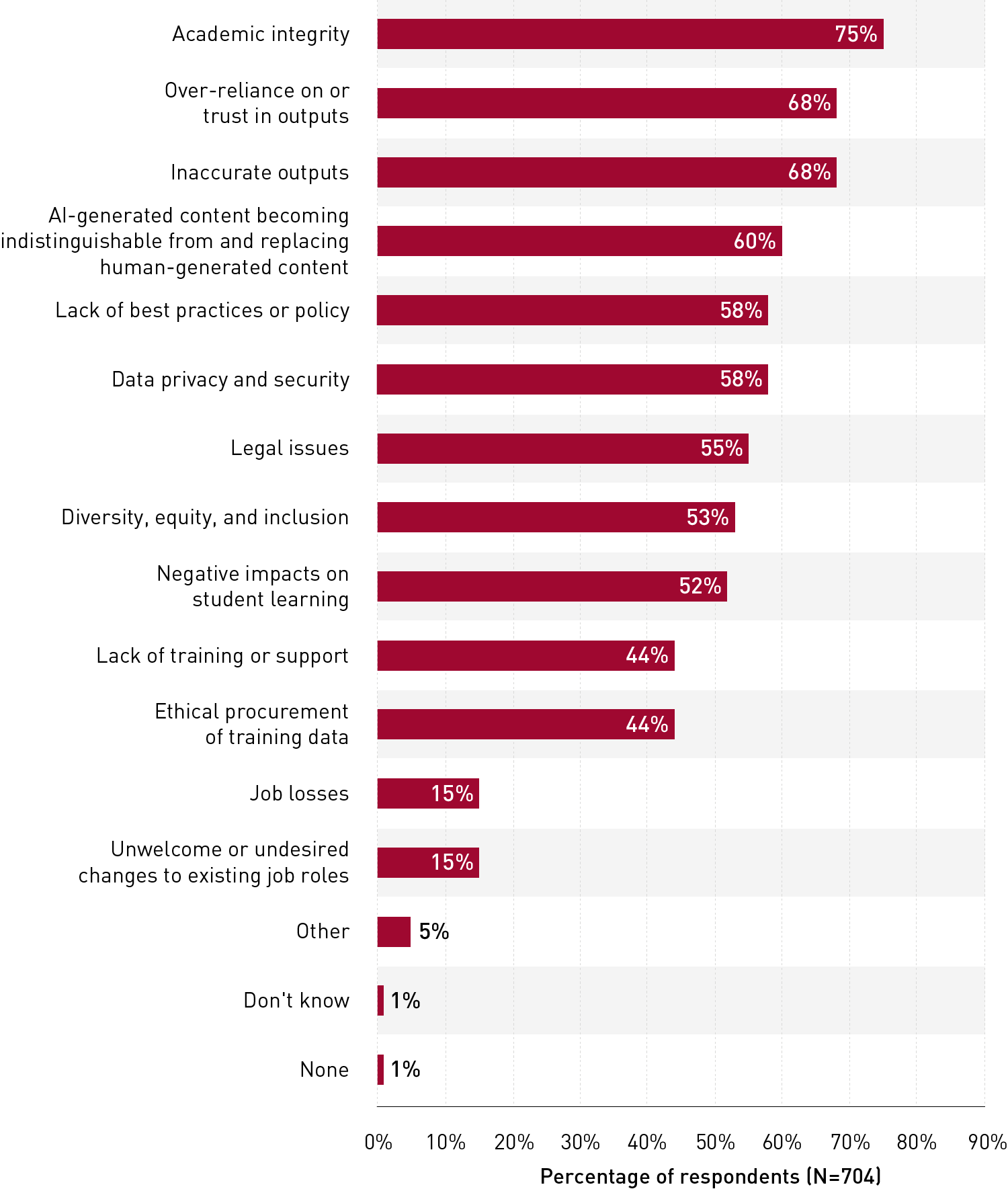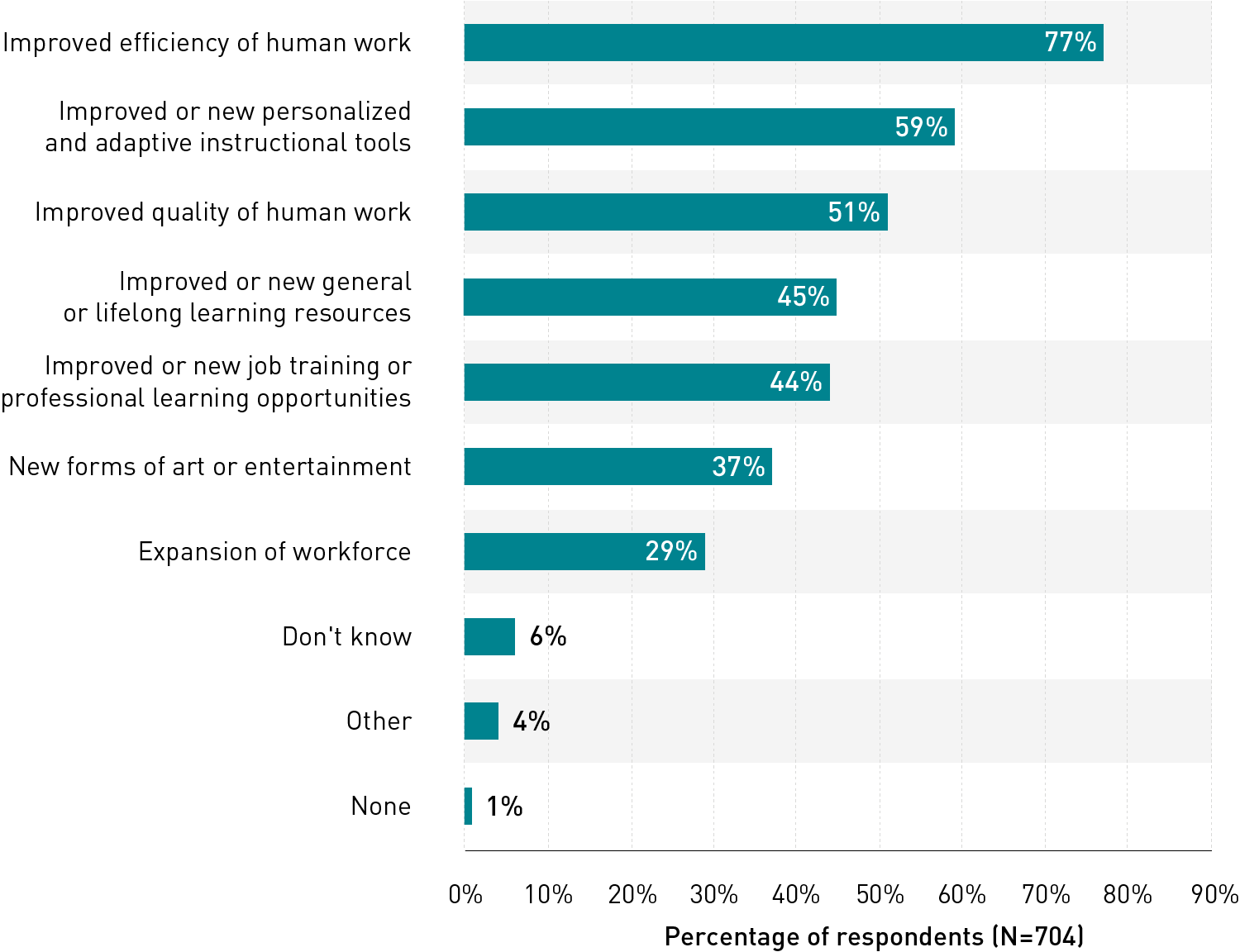 General Disposition toward Generative AI
General Disposition toward Generative AI
Dear Commons Community,
EDUCAUSE released this morning the results of a quick poll it conducted of college administrators and faculty regarding their views of ChatGPT. This poll was conducted between February 6 and 7, 2022, and resulted in 1,070 complete responses. Respondents who indicated that they had never heard of generative AI were not allowed to respond to any other questions and were not included in the final number of respondents.
From the report’s introduction.
“Few technologies have garnered attention in the teaching and learning landscape as quickly and as loudly as generative artificial intelligence (AI) tools—tools that use AI to create content such as text, images, and sounds. Specifically, the text-generating tool ChatGPT has been making headlines, despite GPT models having been around for a few years. The recent attention is undoubtedly due to major advancements in GPT 3, which allows people to easily generate content that is comparatively sophisticated and increasingly difficult to discern as having been written by a computer. People are using these tools to do everything from negotiating cable bills to writing love songs. As a society, we’re still trying to figure out how we want to use generative AI, and this uncertainty is creating some tension among higher education stakeholders. Faculty seem firmly divided; some are excited about leveraging generative AI in the classroom, while others are banning its use. Administrators are rushing to put together institutional policies governing generative AI use.”
Below are some results.
The entire report is worth a read!
Tony
—————————————————————————————–
Figure 8. Greatest Concerns Related to Generative AI Use

Figure 9. Greatest Opportunities Related to Generative AI Use



